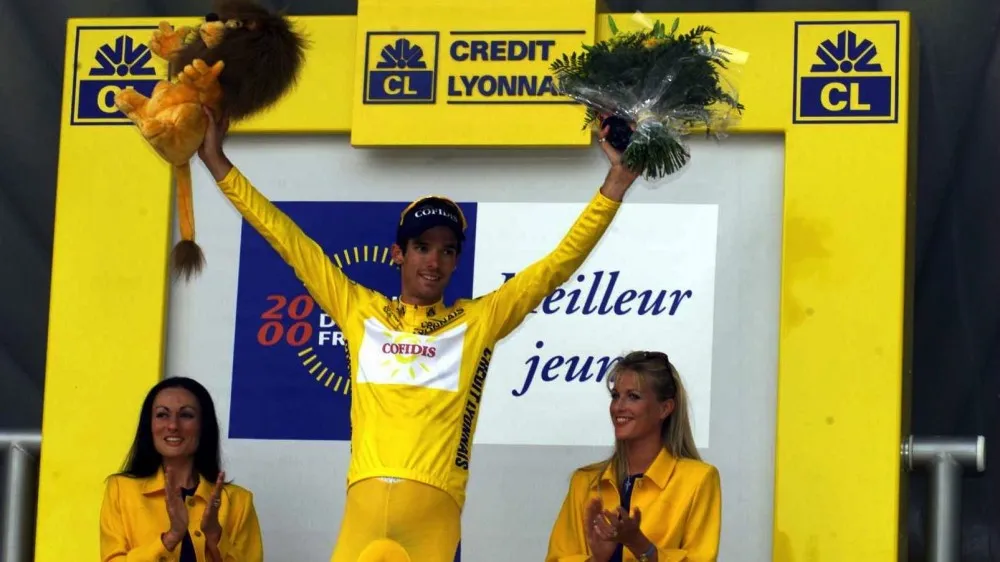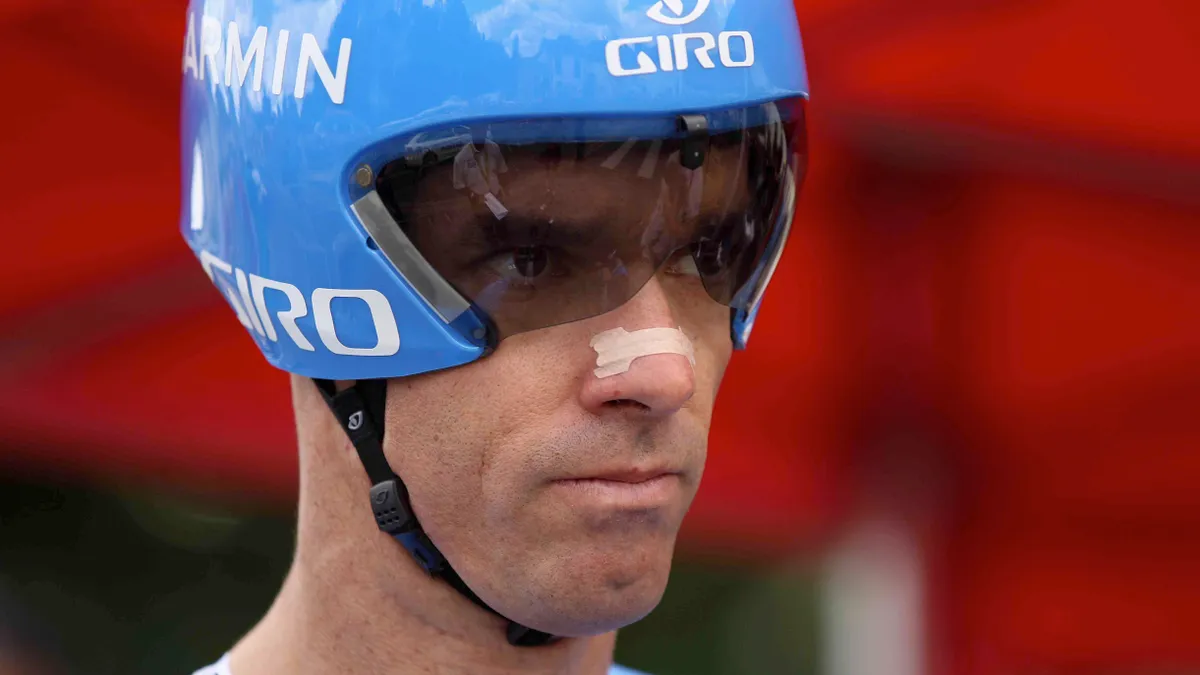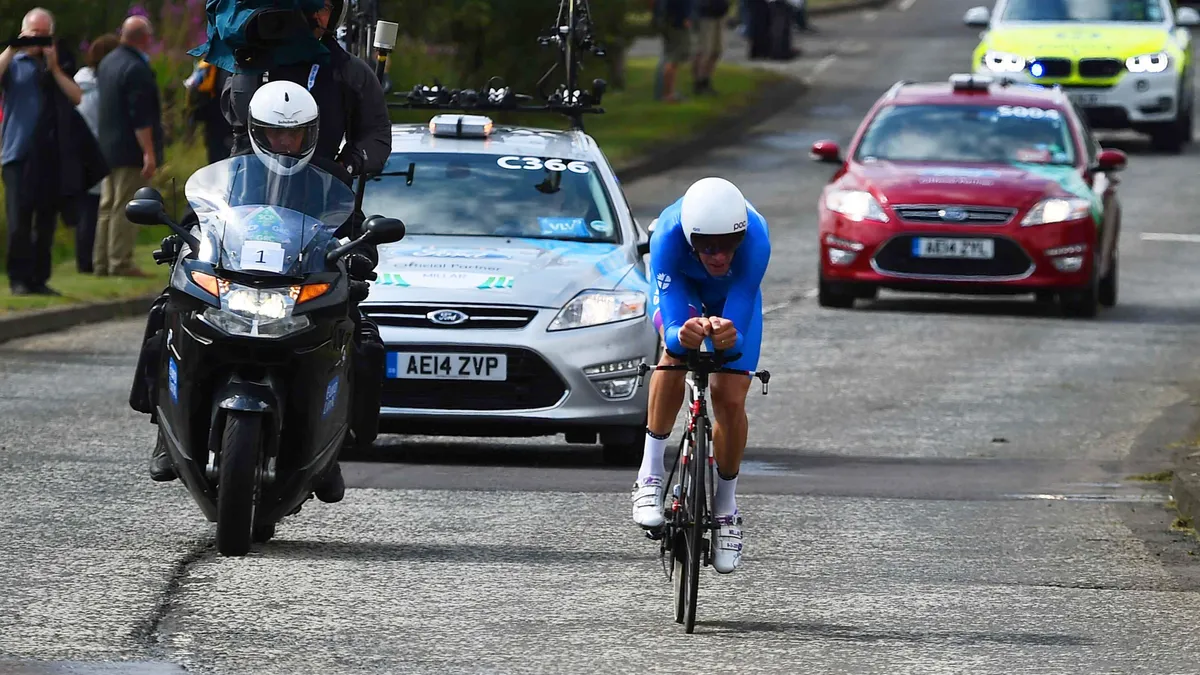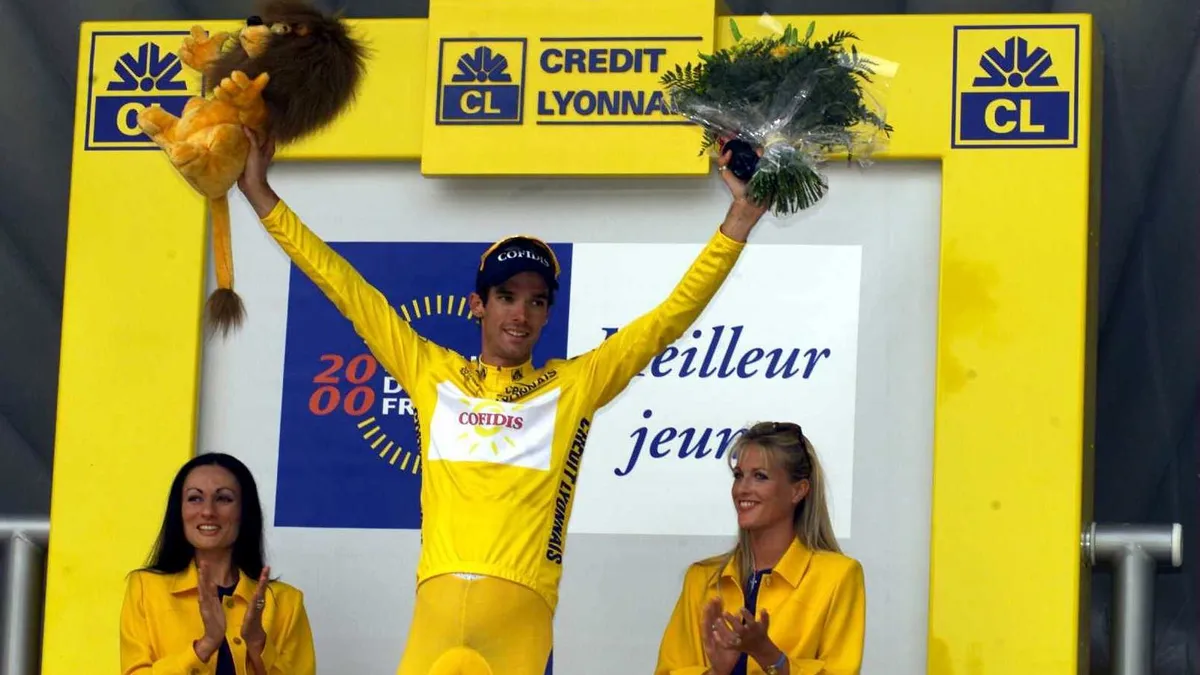“The thing with time trialling is you’re the master of your suffering,” says David Millar, one of Britain’s foremost exponents of the discipline who is now sharing his training tips and advice.
“When you’re in a road race, the majority of the time it’s other people that are handing [out the suffering] to you. And, you know, I love road racing when I’m handing it out. But with time trialling, the more you do it, the more you start to kind of enjoy the challenge of teetering on your redline.”
The thrill of that knife-edge balancing act may be at the core of Millar’s love of time trialling but it’s only one of many aspects that led to him devoting himself to the peculiar challenge of racing alone against the clock.
- David Millar to mentor British Cycling men's endurance academy
- David Millar: "In a few years we won't see cables or brakes anywhere
- 'Racing Through The Dark' by David Millar book review

David Millar training ahead of the 2003 Tour de France
“I think, originally, it was coming from the British time trial scene. [The TT] was an event that I cherished as a kid and enjoyed. And when I went over to the continent, it became obvious quite quickly that it was an advantage that I’d already worked on my time trialling so much. I’d done so many time trials, way more than my peers from different countries.
“Any pro or any athlete tends to pinpoint what they’re good at and the type of events where the results come. And for me the results were coming in time trials – not easily but I’d get results constantly in time trials and so I just thought, ‘You know what? This is what I’m going to target.’
“Also, at the time I turned pro in ’97, doping was prevalent, and I was made to think that all the big 200km races would be impossible to win clean. But in a time trial of 10, 15 or 20km, I could beat guys on drugs. And so it became my go-to event.”
Too much, too young

David Millar wearing the yellow jersey after stage 3 of the 2000 Tour de France
The decision to focus on his chosen speciality netted Millar a number of high-profile victories in the early years of his professional career, most notably in the prologue of his debut Tour de France in 2000. A win that earned the then-23-year-old Millar a three-day spell in the yellow jersey.
Millar’s pro career was turbulent, filled with peaks – he was the first British rider to wear the leader’s jerseys in all three grand tours – and troughs. The deepest of which being the doping that led to his two-year ban and cost him the 2003 world time trial championship title.
During those many highs and lows, Millar built up a deep knowledge of time trials, how to approach them and what’s required to excel in them. It’s for this reason that A1 Coaching got in touch with him after his retirement in 2014.
“I was approached by the guys at A1 Coaching because they wanted to do some time trialling training courses and I thought, ‘Yeah, I’d like to share some of my knowledge while it’s still fresh in my mind.’ And the more we worked together, the more it became clear that I had so much to offer.
“[A lot of it was] stuff that I’d never really thought about… I almost have a system that I wasn’t aware I had, a system involving the position, the equipment, the strategy, the checklist beforehand… It’s really been a lot of fun putting it all together and hopefully people will be able to get a massive amount from it.”
Sharing his expertise

David Millar racing the time trial at the 2014 Commonwealth Games in Glasgow
So what’s the biggest piece of advice he has to give riders looking to improve their performances against the clock?
“The first thing is: don’t fall into the trap of thinking that you’re immediately at a disadvantage if you don’t have a TT bike and a disc wheel and all that stuff. I think part of the fun of time trialling isn’t just about going out there and trying to win but going out there and finding ways of going as fast as you can.
“You can start off by morphing your position and getting the best out of what you have, which means pretty simple tweaks.
“I think it’s easy to get wrapped up in the idea that it’s all about the bike but the biggest thing you’re pushing through the air is your body. So it’s kind of learning how to make yourself smaller, to shrink down and hide from the wind.”
It seems that, for Millar, part of the fun of time trialling is the way it combines competition with experimentation – a discipline that’s a cross between a race and a laboratory.
“It’s one of the few areas in road cycling where you can control the variables, up to a point. [In] road races, it’s very hard to control the variables because it’s just so unpredictable. But in a time trial you can go out and you can try different things and experiment and learn a lot about yourself and all the science and technology.
“It’s kind of a game you can play with yourself and I think that’s what’s enjoyable about time trialling.”
To benefit from Millar’s years of TT experience, check out the free videos he’s produced with A1 Coaching.




